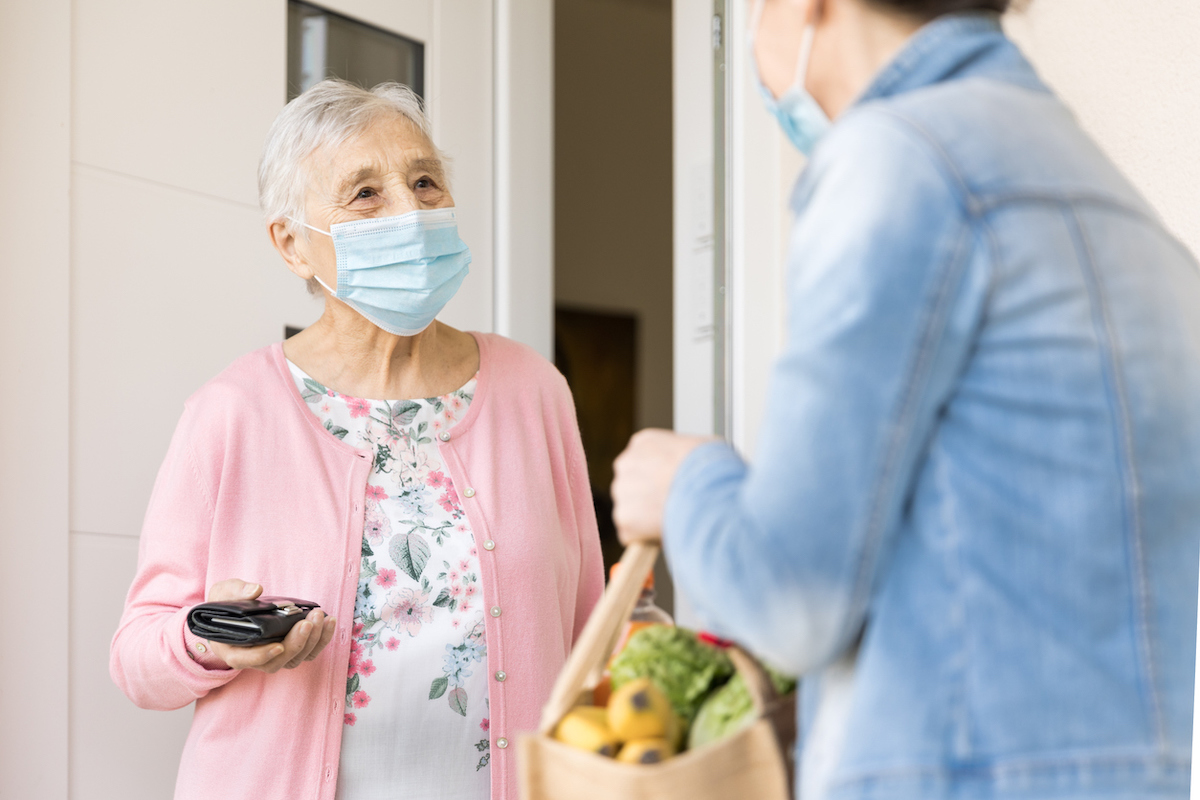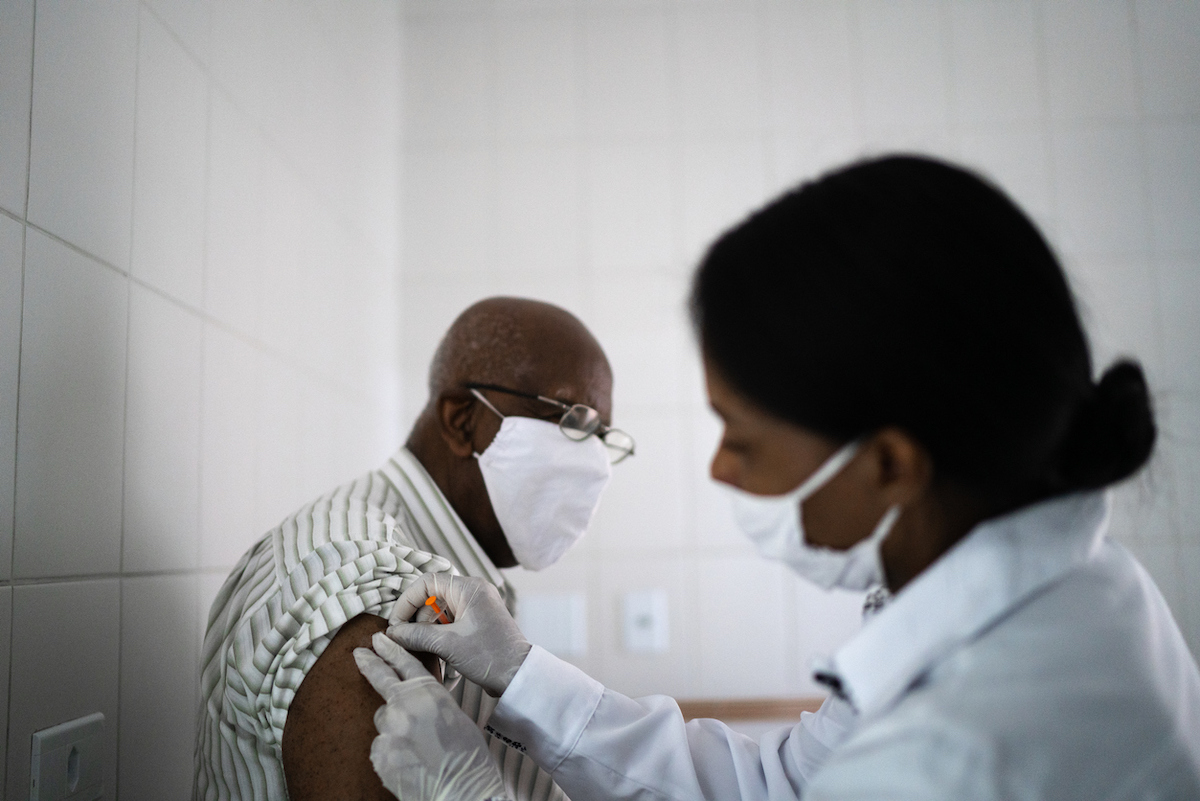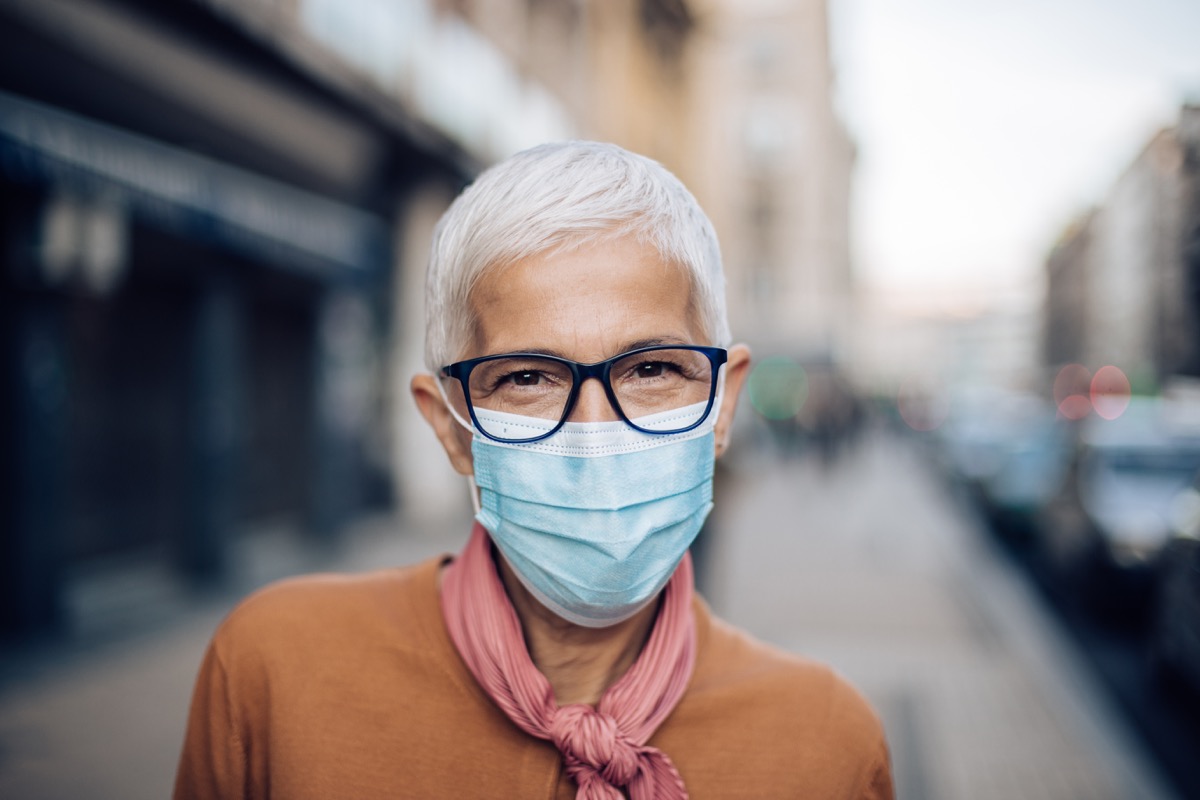For the new study, which was published in the medical journal The Lancet, a team of scientists out of Denmark’s Department of Infectious Disease Epidemiology and Prevention looked at the reinfection rate among 4 million Danes during the second surge of COVID-19 from Sept. 2020 through the end of Dec. 2020. While there were few instances of reinfection, the numbers skewed heavily depending on age: Young people seemed to have around 80 percent protection against reinfection, but that number fell sharply down to 47 percent among those over the age of 65. “Our study confirms what a number of others appeared to suggest: reinfection with COVID-19 is rare in younger, healthy people, but the elderly are at greater risk of catching it again,” author Steen Ethelberg, PhD, of Denmark’s Statens Serum Institut said in a statement. “Since older people are also more likely to experience severe disease symptoms, and sadly die, our findings make clear how important it is to implement policies to protect the elderly during the pandemic.” And for more warning signs for people in this age bracket, check out If You’re Over 65, You Could Be Missing This COVID Symptom, Study Says. The findings prove that vaccination strategies that prioritize the elderly have been the right call. “The analysis also suggests that people who have had the virus should still be vaccinated, as natural protection—particularly among the elderly—cannot be relied upon,” The Lancet said in a press release on Wednesday. “That’s a very stark difference,” Amy Edwards, MD, an infectious disease specialist at University Hospitals in Cleveland who was not involved with the study, told CNN of the results. “I think it really emphasizes how important it is to make sure that we vaccinate everybody over 60, whether they’ve had COVID or not, to protect them against future infections.” And for more vaccine news, find out why The CDC Says Don’t Do This Until 4 Weeks After Getting Vaccinated. The reason why seniors are more likely to get COVID twice is due to immunosenescence, or “the age-associated decline of the immune system that may contribute to the increased incidence and severity of infectious diseases and possibly certain cancers in the elderly,” as NeuroImmune Biology describes it.ae0fcc31ae342fd3a1346ebb1f342fcb “There’s a reason why people over 60 have to get extra vaccines to boost their immunity to various infections, because we know that the immune system starts waning in later life,” said Edwards. And for more COVID news delivered right to your inbox, sign up for our daily newsletter. The Centers for Disease Control and Prevention (CDC) has maintained that “cases of reinfection with COVID-19 have been reported, but remain rare.” And this new study confirms that fact. The research showed that of the 11,068 people who tested positive during the first surge, only 72 tested positive again during the second. Overall, researchers found that less than 1 percent of people got reinfected in the second wave of COVID-19. However, this jumped to 3.6 percent of people when just those over the age of 65 were studied. The scientists concluded that most people who had the disease seemed to have protection from reinfection for more than six months. “We did not identify anything to indicate that protection against reinfection declines within six months of having COVID-19,” study author Daniela Michlmayr, PhD, of the Staten Serum Institut in Denmark, said in a statement. “The closely related coronaviruses SARS and MERS have both been shown to confer immune protection against reinfection lasting up to three years, but ongoing analysis of COVID-19 is needed to understand its long-term effects on patients’ chances of becoming infected again.” And for more on the latest on how the vaccine affects certain people, check out This Is Why Half of People Have Stronger Vaccine Side Effects, CDC Says.



